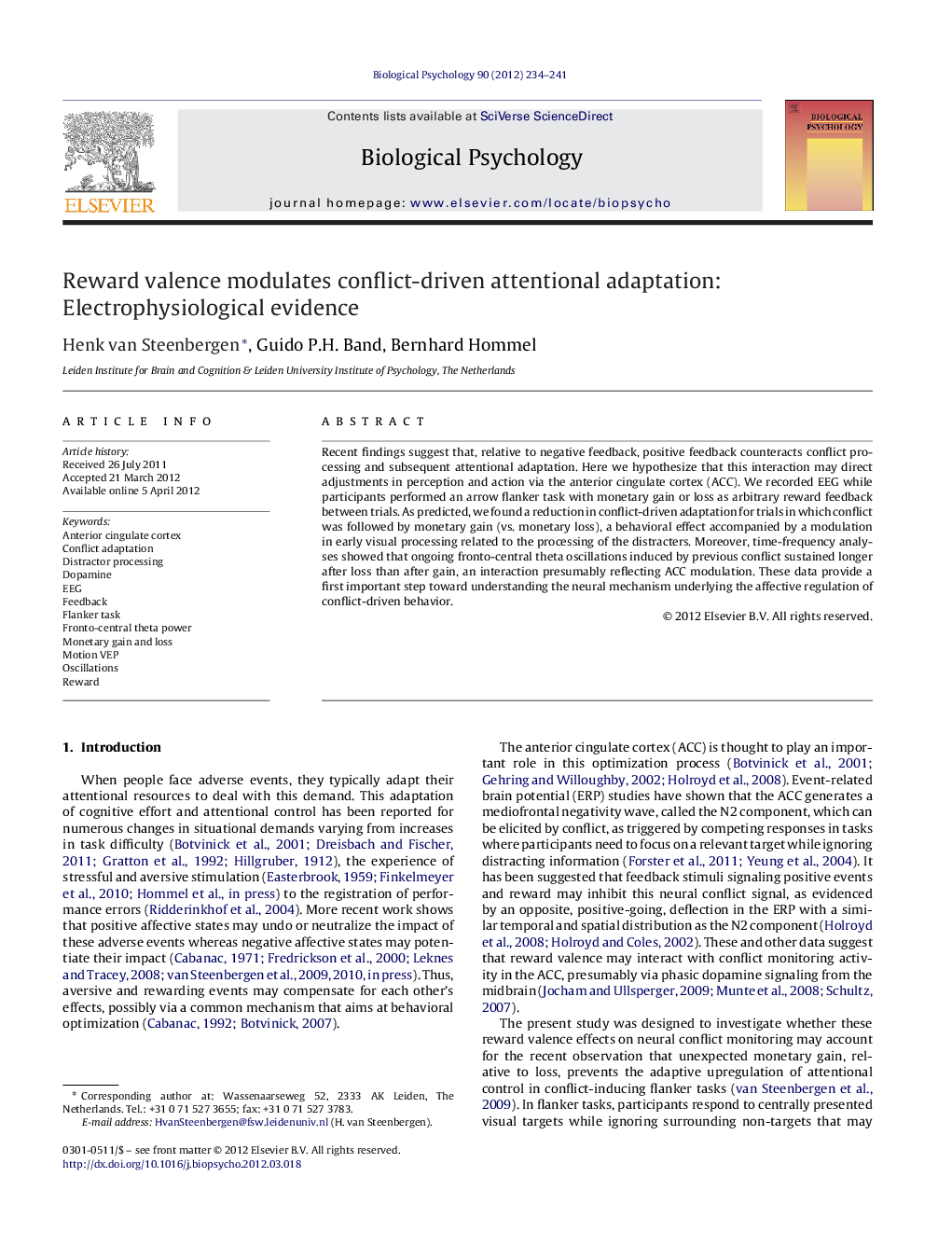| Article ID | Journal | Published Year | Pages | File Type |
|---|---|---|---|---|
| 921033 | Biological Psychology | 2012 | 8 Pages |
Recent findings suggest that, relative to negative feedback, positive feedback counteracts conflict processing and subsequent attentional adaptation. Here we hypothesize that this interaction may direct adjustments in perception and action via the anterior cingulate cortex (ACC). We recorded EEG while participants performed an arrow flanker task with monetary gain or loss as arbitrary reward feedback between trials. As predicted, we found a reduction in conflict-driven adaptation for trials in which conflict was followed by monetary gain (vs. monetary loss), a behavioral effect accompanied by a modulation in early visual processing related to the processing of the distracters. Moreover, time-frequency analyses showed that ongoing fronto-central theta oscillations induced by previous conflict sustained longer after loss than after gain, an interaction presumably reflecting ACC modulation. These data provide a first important step toward understanding the neural mechanism underlying the affective regulation of conflict-driven behavior.
► Conflict and reward may have opponent effects on attentional focus. ► This study: possible neural mechanism via ACC modulation? ► Behavioral effect: reward valence counteracts conflict-driven adaptation in a flanker task. ► EEG effect: modulation of fronto-central theta power. ► ERP effect: modulation of visual distracter-related processing.
